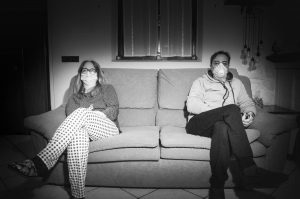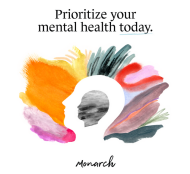Relationships
Good Faith Estimates: What You Should Know
Good Faith Estimates: What You Should Know
As of January 1, 2022, there is a new law called the No Surprises Act that requires all health care providers to give clients who don’t have insurance or are not using insurance an estimate of the bill for medical items and services they are to receive because the provider is out-of-network for their benefits.
“Surprise billing” is when you receive a bill with an unexpected balance. This can happen when you cannot control who is involved in your care, such as when you have an emergency hospitalization and a service is provided by an out-of-network provider at an in-network facility.
You have the right to receive a Good Faith Estimate for the total expected cost of any non-emergency items or services. This includes related costs like medical tests, prescription drugs, equipment, and hospital fees. In the case of mental health, it refers to the number of sessions you are likely to have with your mental health professional (a licensed social worker, mental health counselor, marriage and family therapist or clinical psychologist).
Your health care provider should give you a Good Faith Estimate in writing at least 1 business day before your medical service or item. You can also ask your health care provider, and any other provider you choose, for a Good Faith Estimate before you schedule an item or service.
If you receive a bill that is at least $400 more than your Good Faith Estimate, you can dispute the bill.
Make sure you save a copy or picture of your Good Faith Estimate.
If you are a client of my practice, you will have been sent a Good Faith Estimate through the client portal. To view and acknowledge receipt of your Good Faith Estimate, log into your client portal. Your Good Faith Estimate was created based on our current meeting frequency and your session rate but may likely be overestimated, in order to provide you the maximum amount of out-of-pocket expenses for treatment. If additional services are recommended, your Good Faith Estimate will be revised to reflect the change. The estimated costs are good for 12 months after the date of the Good Faith Estimate.
Remember, this is not a bill. If you do not have as many sessions this year as are listed in the estimate, then your costs will be lower than estimated. The Good Faith Estimate includes additional information about your rights and how to learn more. And as always, feel free to reach out to me with any questions you may have.
For more information about your right to a Good Faith Estimate or how to use the dispute resolution process, you can visit www.cms.gov/nosurprises or call 1-800-985-3059.
** The No Surprises Law has already seen several revisions, so it is subject to change. This document on the CMS website currently has an expiration date of 3/31/22.
Find yourself, and be that.

Licensed Clinical Social Worker
EMDR Certified Therapist
112 W. New York Avenue, Suite 205
DeLand, FL 32720
How to Help Your Marriage Survive Lockdown

How to Help Your Marriage Survive Lockdown
Relationship experts share advice on how to survive “intensive togetherness.”
Dinner at home was not on the menu when Jennifer Monahan planned her 10th wedding anniversary. But that was before the coronavirus pandemic drove hundreds of millions of couples around the globe indoors and into intensive togetherness, for better or for worse.
 On April 10, she and her husband Brian instead raised a toast to their marriage from the confines of their shared living space. “Travel was out, and dinner in a nice restaurant was, um, off the table. So, we stayed in and had a nice home-cooked meal,” said Monahan, a communications manager at UC Berkeley’s School of Social Welfare.
On April 10, she and her husband Brian instead raised a toast to their marriage from the confines of their shared living space. “Travel was out, and dinner in a nice restaurant was, um, off the table. So, we stayed in and had a nice home-cooked meal,” said Monahan, a communications manager at UC Berkeley’s School of Social Welfare.
Such are the lighter moments of love and marriage in tight quarters, though plenty of couples may soon be singing Dan Hicks’s “How can I miss you when you won’t go away?”
Intimate relationships can turn dark pretty fast under stay-at-home orders when decisions over whether to go for a run, make a trip to the grocery store, or have food delivered include a life-or-death component, said Berkeley psychologist Robert Levenson.
Not business as usual
Levenson, a veteran scholar of long-term relationships, has tracked the psychological and physiological changes in more than 150 middle-aged and older couples in the San Francisco Bay Area for 30 years.
Today, in the face of COVID-19, the frustrations couples normally express in counseling sessions—such as financial worries, the division of chores, intimacy or a lack thereof, and conflicting views on childrearing—are taking a scarier turn.
“People are asking themselves, ‘What if I get sick?’ ‘What if my partner gets sick?’ ‘What if we can’t get enough food?’ ‘What if we lose a job?’ ‘What if the world order crumbles, and it doesn’t feel safe to be out in the street?’” Levenson said. “This is a crucible that people are being thrust into, and it’s just not business as usual.”
More than 20 percent of the global population is currently under lockdown. Unlike World War II, which gave way to the baby-boom generation, demographers agree the 2020 coronavirus pandemic is more apt to drive up divorce rates than birth rates, as can be gauged in parts of China where the first COVID-19 cases were detected, and severe shutdowns were enforced.
Don’t feel bad about feeling bad
For highly sensitive people, spousal lockdown can feel viscerally excruciating, as familiar routines are disrupted and irritations fester over how one or the other partner eats, breathes, sleeps, and generally goes about their business. Add children to the mix, and tempers can explode.
“A lot of adults are struggling right now with lowered productivity, given the remote work situation, and—if they’re parents—with having kids afoot and having to homeschool them,” said Serena Chen, a psychology professor at Berkeley who studies the benefits of self-compassion in relationships.
Beating yourself up for feeling bad about feeling bad is counterproductive, said Iris Mauss, an associate professor of psychology at Berkeley.
“Everyone right now is experiencing some form of stress. And while these responses are incredibly common, many people negatively judge themselves for having them,” Mauss said.
“Research shows that the more we allow ourselves to feel negative emotions, the quicker they resolve themselves, and the less toxic they are.”
When personalities clash
Berkeley psychologist and Greater Good Science Center founding director Dacher Keltner, an expert on the science of emotions, recommends couples do their best to avoid the behaviors listed in psychologist John Gottman’s Four Horsemen of the Apocalypse: criticism, contempt, defensiveness and stonewalling.
But that’s a tall order, especially when one partner is hypervigilant about COVID-19, while the other is laissez-faire.
When partners get polarized, both need to take a giant step back and figure out how to meet each other halfway, said psychologist Arthur Aron, a researcher at Berkeley’s Institute of Personality and Social Research. He and his wife Elaine developed the famous 36 questions to accelerate intimacy.
“For example, my partner is highly sensitive. She notices the things I miss. But I can take on the things that she may find hard to take on, so we work together as a team,” said Aron, who is also a research professor at Stony Brook University in New York.
Still, there’s no question that the stress of being cooped up together for an indefinite period “amplifies the fault lines that already exist in a relationship,” said Philip Cowan, a professor emeritus of psychology at Berkeley.
Plus, old disagreements that a couple thought they had resolved can suddenly return, said his wife, Carolyn Pape Cowan, a Berkeley professor emerita of psychology.
“Couples may disagree about what their kids should be allowed to do during shelter-in-place measures, when so much is at stake,” Pape Cowan said. “And those conflicts may go back to when they had their first baby, and one parent wanted to pick up and comfort the crying infant, while the other thought that picking up the baby would spoil him.”
Couples under crushing poverty
For four decades, the Cowans, both clinical psychologists, have conducted and supervised large-scale studies and therapeutic interventions for more than 1,000 couples, many of whom are low-income.
Job losses, poor access to health care, and competition for scarce resources will make their lives harder than they already are. “These families have more intense stresses and less patience, when it comes to talking,” Pape Cowan said. “It’s going to be very hard for them.”
Jeffrey Edleson, a UC Berkeley professor and dean emeritus of social welfare, and leading expert on domestic violence dynamics and prevention, wholeheartedly concurs. “Given the dramatic increase in unemployment, especially among those in lower-income brackets in our country, it is likely that family violence is also increasing. This combined with the ‘safe at home’ orders creates a highly combustible situation at home for many,” he said.
Levenson predicts that, while the COVID-19 pandemic will break a lot of relationships, it will make others stronger—but only if couples are prepared for the hard work ahead.
“For most of us, this is going to be one of the single, defining social moments in our relationship. It will be like 9/11, but longer,” Levenson said. “It’s a lot like that very challenging stage of a relationship when you first move in together after dating, and you’re discovering things about yourself and your partner as a couple that are really important building blocks for the kind of life you’re going to have together.”
This article was originally published on Berkeley News. Read the original article.
